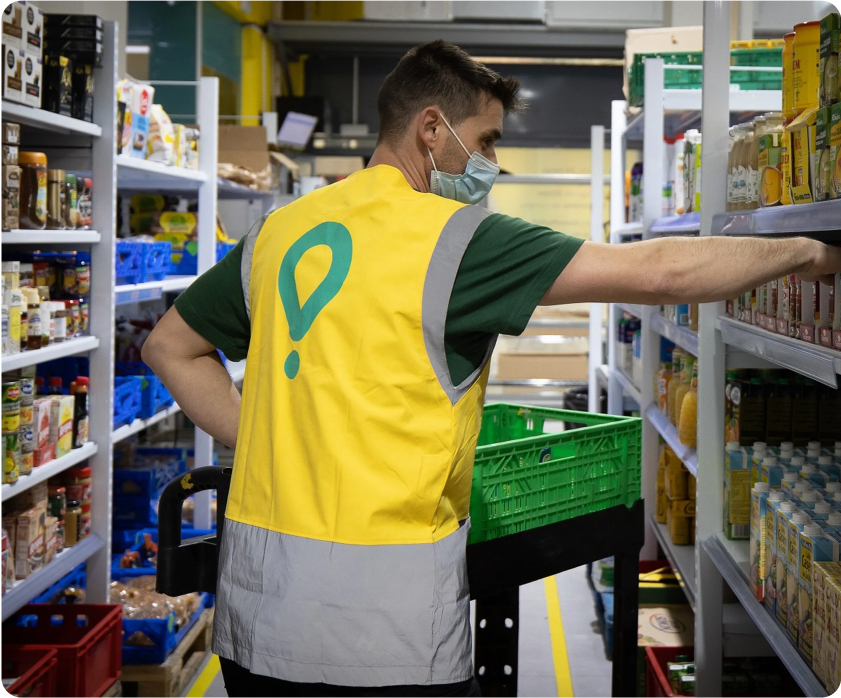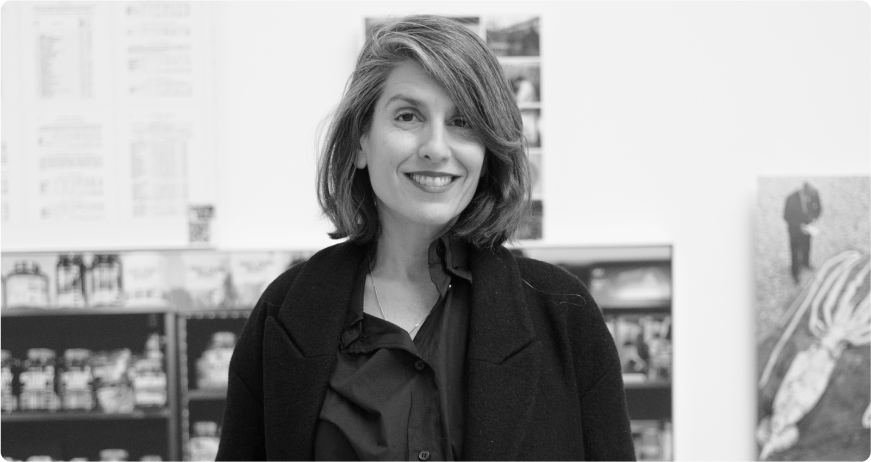
give
Morocco
Technological platforms for ordering food… and for saving lives when a disaster happens
The widespread use of mobile applications has shown their potential as key tools in natural or man-made humanitarian disasters, such as wars or climate emergencies.
Article
By Juan León
16 Apr 2024
What would you do if you found out there had been an earthquake where your loved ones live? Your first reaction would probably be to reach for your phone to contact them to make sure they are okay. While this may be a common thing to do, it has a number of implications, particularly in the context of humanitarian emergencies, whether natural (earthquakes, hurricanes, volcanic eruptions) or man-made (armed conflict or the effects of climate change).
The use of geolocation on certain social media platforms during the earthquake in Morocco in September 2023, was essential for locating many of the survivors. At the same time, companies in the sector quickly organized fundraising (crowdfunding) and donation campaigns using online payment tools or features specifically designed for this kind of situation, recalls Victor Calvo-Sotelo, the CEO of DigitalES, the Spanish Association for Digitalization.
Companies such as Glovo were particularly active in collecting donations. “Our response to the crisis caused by the earthquake was part of a national collaborative effort, and we offered our technology to alleviate the situation as much as possible,” explained Hamza Naciri Bennani, the company’s general manager in Morocco. “Thanks to our Crisis Relief Fund, we were able to cover the shipping costs in the affected areas, facilitating access to essential products and unlocking immediate financial resources for the businesses and the delivery drivers affected by the disaster. We also activated a donation feature in our app, allowing users in Morocco to contribute to relief efforts in a transparent and efficient way.” “Thanks to this initiative, we managed to raise 2 million dirhams (almost 185,000 euros) that we transferred to local humanitarian organizations, including Jood, SOS Villages d’Enfants Maroc and Banque Alimentaire du Maroc, ensuring that the donations reached the people who needed them”, said Naciri Bennani.
The capabilities of a technology platform to cope with a humanitarian disaster include organising crowdfunding campaigns, online payment tools or specific features within their applications
Having the ability to maintain and strengthen their infrastructures enables telecommunications companies to provide communication channels between affected people and their family and friends during a crisis. In those times of emergency, having access to information about situations or loved ones and “other free resources”, as Calvo-Sotelo points out, is crucial. And in this regard, technology companies can play a significant role.
At this point, it seems like it has become a standard for companies operating in this field, says Elena de Pedro, director of Digital Policies at Harmon: “The role of technology is now everywhere, in all sectors and areas. For this reason, helping public institutions and, ultimately, for the population, is intrinsic to them.” Both experts agree that this was also evident during the COVID-19 pandemic. According to DigitalES, during those months of total lockdown, network traffic increased by more than 40%. “It was an actual stress test” for the sector, but they had the resources to endure.
In turn, De Pedro also mentions how technology platforms signed agreements with governments in different countries “to help with other key issues and to support the sustainability of the societies” and provide “useful and truthful” information about uncertain situations of uncertainty.

When disaster is man-made
Disasters are not always caused by nature. Human actions can also lead to serious humanitarian crises. This is particularly evident in Ukraine and other territories where there are conflict zones. In Eastern Europe, technology platforms have been used to a greater or lesser degree to secure communications and maintaining a relatively normal life while being bombarded. For Calvo-Sotelo, this showcases “their solid values and his social commitment, where they are needed most”.
The Spanish employers’ association thinks that “in times of crisis, it is important to find a proper balance between private companies and corporate social responsibility.” This balance has been developing for years in the form of cooperation plans with the public sector and, “with proper planning, work very well”. As long as the “resources are used efficiently for the benefit of society as a whole,” Calvo-Sotelo points out.
For example, by providing free calls and SMS messages to Ukrainian citizens so that their customers can stay in touch with their loved ones. Maryna Pavliuk, Glovo’s general manager of Glovo in Ukraine, believes that “we can’t just stand by”. The conflict has shown “how society is coming together around a difficult issue.” She adds that the company, she adds, must be “in tune with the ecosystem,” that is, “with society, local businesses and other companies.” They have done this by launching different projects such as Help for Ukraine, Delivering a Safe Future. They have also created a single impact fund that has invested 195,000 euros to help the population and local NGOs. Over the past five years, more than 85 million euros have been allocated to Ukraine, “one of our priority markets”, which is among the top five countries of the 25 countries where Glovo operates. In turn, Glovo is also working closely with United24, President Zelenski’s initiative to raise funds for Ukraine. Last year, we donated $50,000 to help demining various civilian areas and so we helped to protect the population. We also created a donation section within our Glovo app where users could donate to United24.
However, to what extent should a company get involved in geopolitical issues? For De Pedro, “getting involved or not is the decision of each company, but it is clear that technology platforms have shown that they can play a hugely relevant role in supporting the citizens of a country.”
Elena de Pedro: “In times of crisis, it is important to find a proper balance between private companies and corporate social responsibility’’
In Ukraine, it is pretty clear, she says, with companies “of all sizes and sectors focused on supporting states in order to protect the citizens.” She gives the example of major international tech companies that have decided to offer their support to Ukraine “to prevent cyber-attacks that would have put the data of the entire population at risk,” or others “that “are committed to sustaining democracy to prevent the spread of disinformation, both inside and outside the conflict zone.” “Whether it is because of their interests or political ideas behind it, what is clear is that technology companies can make a big impact on citizens in these types of conflict,” she concludes.
The digitalization and green transition are two key areas that can help us dealing with another of the century’s most important challenges: the climate emergency. According to Calvo-Sotelo, these two areas “go hand in hand”. He points to data obtained from the telecom company Ericsson about the sector, which generates about 1.4% of global emissions. But it has the potential to reduce them globally by between 15% and 30% by 2030, using digital solutions “based on connectivity, the Internet of Things (IoT) technologies, the cloud, big data, and artificial intelligence (AI).”
Other posts that may interest you:

give
Spain
Impact Fund: Projects that are making an impact
Impact Fund is a unique initiative in the industry where a small percentage of the profit from each order generated on Glovo is dedicated to financing Impact and Sustainability projects.

green
Spain
Interview with Miriam Zaitegui-Pérez: “Not only can we harness the wind and the sun more; we have to harness them better”
The ecological transition, along with the promotion of the circular economy and the creation of new narratives about the environmental crisis are pivotal elements when discussing the future sustainability of our planet. Miriam Zaitegui-Pérez, director of the European Climate Foundation’s program in Spain, advocates for an ecological transition that is equitable and addresses social and territorial considerations.